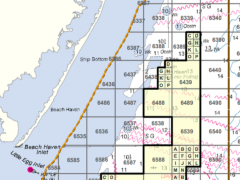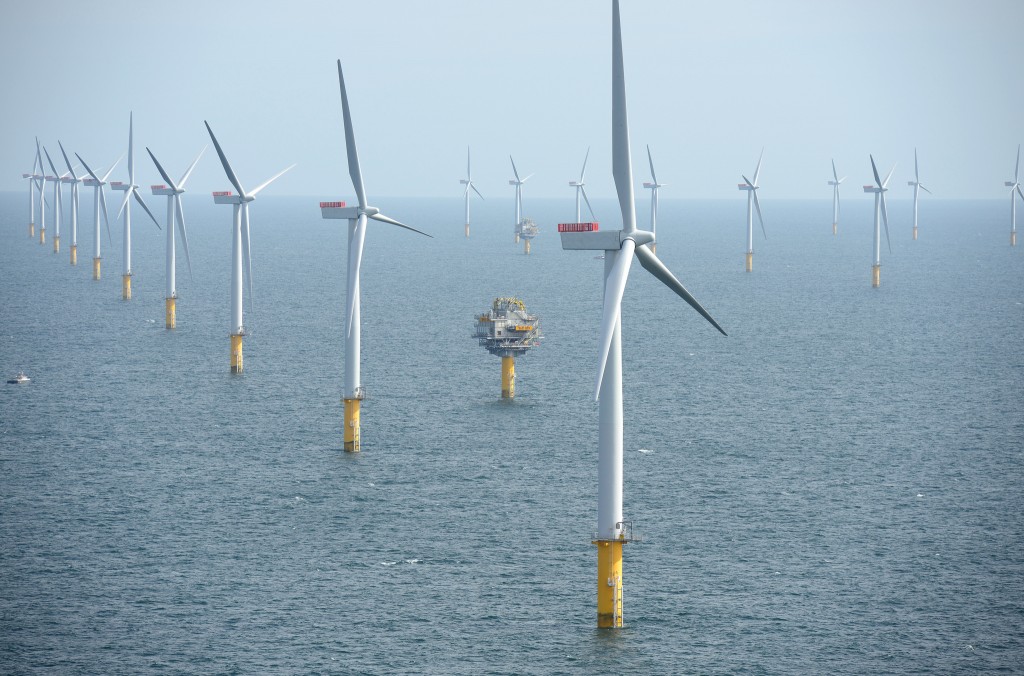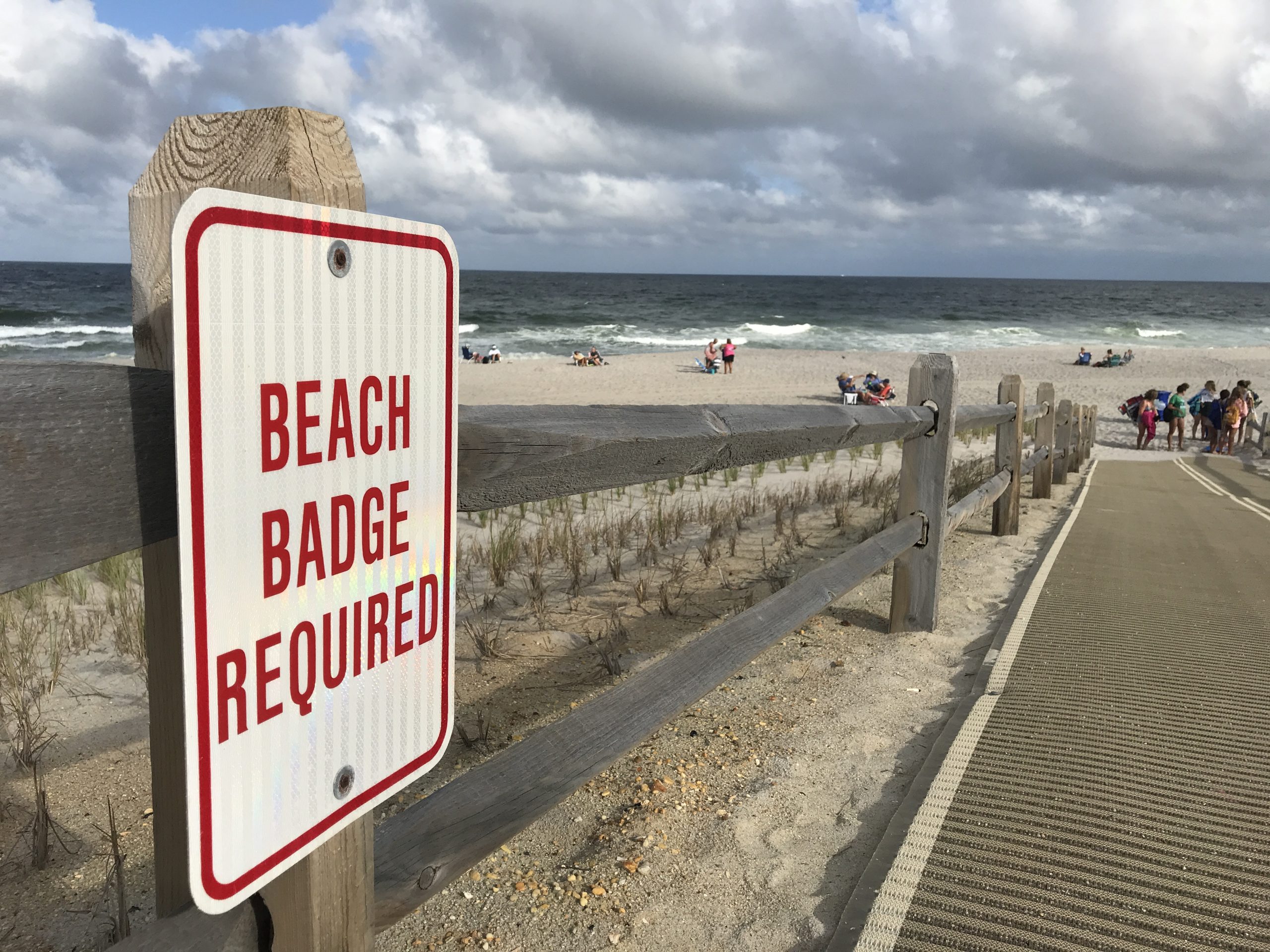This week, the federal government announced the award of two leases off the New Jersey coast where thousands of wind turbines could eventually be constructed – likely within view of the naked eye from beaches. But the view off Ocean County’s northern barrier island will likely remain unobstructed.
The Bureau of Ocean Energy Management, an arm of the federal Department of Interior, announced the two 25-year lease awards earlier this week. Permission to develop turbines in the southern area, a swath of 160,480 acres off Cape May and southern Atlantic counties, was granted for $880,715. The lease went to RES America Developments Inc. The northern portion, 183,353 acres of ocean off northern Atlantic and southern Ocean counties, was leased for $1,006,240 to US Wind Inc.
Still pending is a third lease area, which extends from the southern coast of Long Island to an area near Point Pleasant Beach and Bay Head, maps show.
Who Will See What?
While offshore wind turbines have received praise for generating renewable electricity, it has faced opposition, primarily from coastal residents and governmental agencies, over the potential for the facilities to disturb an otherwise unobstructed view of the ocean.
In the Long Beach Island portion of the New Jersey lease area awarded this week, turbines visible from the beachfront is a distinct possibility. The turbines, according to BOEM, will be located seven nautical miles offshore – well within sight range, according to a study of similar facilities in the United Kingdom.

The area off Long Beach Island (shaded in yellow) to be developed with offshore wind. (Credit: BOEM)
According to the Argonne National Laboratory, the study showed that offshore turbines were visible at distances of 26 miles during the daytime and 24 miles at night, and may be a “major focus of visual attention” at distances of up to 10 miles. The northern portion of the leases awarded this week are at their closest point – about 7 nautical miles – to shore off Ocean County, where the development zone runs along the entire southern half of the island, from Holgate to Surf City.
The same distance between the shore and development south of Ocean County – from Brigantine south to Sea Isle City – exists to barrier islands in that area.
The northernmost boundary of the leases awarded this week is in an area east of Surf City and the North Beach section of Long Beach Township, leaving the northern barrier island squarely in the clear.
The third offshore wind development zone, according to maps released by BOEM, will be located 11 miles south of the Long Beach, N.Y., but far removed from the view of the northern Ocean County and southern Monmouth County coastline. That project may prove more controversial than the lease areas awarded this week, primarily due to opposition from commercial fishermen, who worry that the wind development may destroy scallop beds.
When Will Construction Begin?
Physical construction on offshore turbines off New Jersey may still be years away. Environmentalists who support offshore wind development have been frequent critics of the administration of Gov. Chris Christie, whose administration has not published rules for offshore wind financing through the state Board of Public Utilities. The two winning bidders under the federal lease auction now have four years to design construction plans, at which point an environmental review process will begin, which will include public comment.
As for the southern Long Island project, bids have not even been formally sought, though BOEM is currently gauging industry interest.
While the projects may face opposition, proponents point to the significant energy the two New Jersey lease areas have the capability of producing. If the entire area is developed, it could account for 3,400 megawatts of commercial wind generation, enough electricity to power about 1.2 million homes. For comparison purposes, the Oyster Creek Nuclear Generating Station – which is scheduled to shut down in 2019 – produces 636 megawatts of energy.
The ocean off New Jersey is a good location for such development, according to one prominent New Jersey environmentalist.
“One of the lessons from Hurricane Sandy is that we need power sources along our coast and we need clean renewable energy to deal with sea level rise and climate change,” said Jeff Tittel, director of the New Jersey chapter of the Sierra Club. “We’ve done studies to find the best places for wind that have the least environmental impacts six years ago. Offshore wind is the most reliable and cost effective form of offshore power and New Jersey needs to pursue policies to facilitate the construction of wind turbines off our coast.”

Advertisement

Police, Fire & Courts
Cops: Juvenile Arrested After 118mph Joy Ride in Seaside Heights, Toms River Kills 2

Seaside Heights & Seaside Park
Seaside Heights OKs ‘Pedacycle’ Tours for 2025 in Revived Experiment

Police, Fire & Courts
Cops: Juvenile Arrested After 118mph Joy Ride in Seaside Heights, Toms River Kills 2

Police, Fire & Courts
Ocean County Sheriff Establishes Drone Command Center in Seaside Heights Amid New Video







